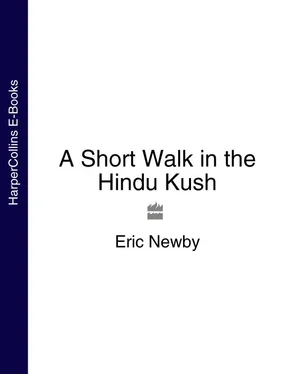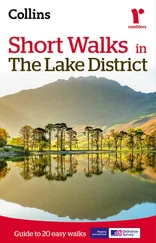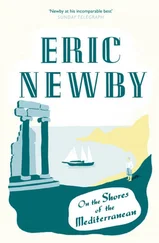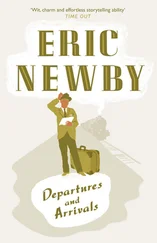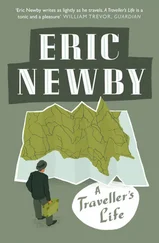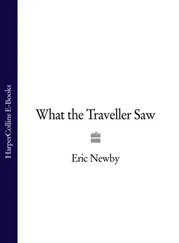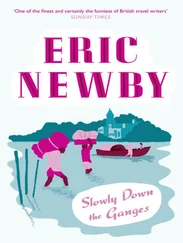She didn’t get as far as the showroom. As she clicked across the hall, she was attracted by the scent counter. She swooped on the largest bottle of scent we put out, a Rajah size flagon as big as a port decanter, and began to croon over it.
‘Why don’t you take it, Minnie?’ said the man in the crocodile shoes, to whom I had already taken a violent dislike.
‘Well, I rather think I will. I just adore these people’s perfume.’ She opened an enormous black gladstone bag and dropped it in.
They sat down and the model girls came streaming in wearing our beautiful new suits. I handed Miss Candlemass the annotated programme and a nicely arranged pattern card with the fruits of my morning’s labours neatly arranged on it.
Miss Candlemass wasn’t paying any attention. She was well away describing the Duke of Norfolk who had been lunching at the next table, in minute, ecstatic detail, for the benefit of the agent, who, by reason of his status, had been given a seat with his back to the engine.
‘What do you think of them, Miss Candlemass?’ Sixteen suits had passed in front of her.
‘A very lovely family; and so old.’
‘Yes, but the suits?’
‘Suits. I don’t want any suits, do I? I’m filled up with suits. I want to see some dresses.’
‘But, surely, Miss Felsheim buys the dresses?’
‘Yes, Lulu buys the dresses, but I just adore to see dresses. You know all that lovely perfume makes me feel in the mood for dresses.’
We showed the dresses. Finally Grand Guignol hove into sight. Great changes had taken place but it still looked ghastly. Miss Candlemass loved it and swore to tell Miss Felsheim about it. As Milly tore round for the long beat to the changing-room, she passed me two envelopes. One contained the perfectly enormous bill for the scent, beaten out in a white heat of rage by the ladies in the counting-house. The other contained a cable. I read it.
It came from the British Embassy, Rio de Janeiro, and was addressed to ‘Eric Rubey, Shammersmith’ (I lived in Hammersmith), which would account for the slight delay. How it had arrived at all was a mystery. It bore three words.
OF COURSE, HUGH.
The showroom, already large, suddenly expanded. I understood what Sassoon meant when he wrote, ‘Everyone suddenly burst out singing.’
Miss Candlemass was saying, ‘I’m afraid you haven’t got it, Mr Newby.’
‘Splendid, splendid.’
‘We did much better with Raymond Beale; he really studies the American market.’
‘Mr Beale has since gone bankrupt. Hi-de-ho.’
As they were leaving I handed the bill for the scent to the agent.
‘I think Miss Candlemass is expecting that as a pourboire .’
‘So do I, very strict firm this, tum-te-tum, very businesslike.’
‘I don’t think she’s going to like this, Mr Newby. It may make things more difficult.’
‘She can put it down to the shoe department, tra-la-la.’
‘I’d better give you a cheque if you insist. You’re very cheerful for someone who hasn’t had an order. Are you always like this?’
‘No, hardly ever. I’ve just had some really good news.’
He wrote a cheque. When they had gone I gave it to Madame Fifi, the aged vendeuse who ran the scent department.
‘Good boy,’ she croaked, patting my cheek. ‘That was a dummy bottle – full of coloured wattair.’ 1
Hugh Carless, who had replied so opportunely to my cable, entered the Foreign Service in 1950. The son of a retired Indian Civil Servant, himself a man of unusual intellectual attainments, he is, like so many Englishmen, in love with Asia. For a time he was posted to the School of Oriental Studies, from which he emerged with a good knowledge of Persian; then to the Foreign Office, from which he frequently disappeared on visits to industrial plants; once he went down a coalmine. It was even suggested that he should visit a couture house and he approached me with this project, which did seem to have a certain educative value. It at least accorded far more with my pre-conceived ideas of the Higher Diplomacy, which derived from an intensive study of the works of E. Phillips Oppenheim, than the visits to atomic piles and computer factories that the spirit of the age demanded.
His Persian being both fluent and academic, he was lucky to be posted to our Embassy at Kabul where he could actually make use of his talents.
From time to time he wrote me long letters, which came to me by way of the District Postmaster, Peshwaar, which I read with envy in the bedrooms of the provincial hotels I stayed in when I ‘travelled’. They were not the sort of letters that third secretaries in the Foreign Office usually write, full of details of the compound, the current indiscretions, the cocktail parties and the people passing through. Instead, they spoke of long, arduous, and to me fascinating, journeys to the interior, undertaken with horses and mysterious beings called Tajik drivers.
It was early in 1952 that he first mentioned Nuristan.
‘An Austrian forestry expert, a Herr von Dückelmann, has recently dined with me,’ he wrote. ‘He has been three or four times in Nuristan. Food there is very scarce, he says, and although he himself is a lean, hardy man he lost twelve pounds in weight during a ten day trip to the interior.’
Later in 1952 he wrote again.
I have just returned from an expedition to the borders of Nuristan, The Country of Light. This is the place for you. It lies in the extreme N.E. of Afghanistan, bordering on Chitral and enclosed by the main range of the Hindu-Kush mountains. Until 1895 it was called Kafiristan, The Country of the Unbelievers . We didn’t get in but we didn’t expect to, the passes are all over 15,000 feet and we didn’t have permission. So far as I can discover no Englishman has been there since Robertson in 1891. The last Europeans to visit it – von Dückelmann apart – were a German expedition in 1935, and it’s possible that no one has visited the north-west corner at all. I went with Bob Dreesen of the American Embassy.
I had heard of Dreesen. He was one of the American party which escaped from the Chinese Communist advance into Turkestan in 1950, evacuating the Consulate from Urumchi by lorry to Kashgar and then crossing the Karakoram Range into India with horses. Hugh went on to speak of a large mountain, nearly 20,000 feet high, that they had attempted to climb and of one of his men being hit on the head by a great stone. At that time it had all seemed infinitely remote, and subsequently Hugh had been transferred to Rio de Janeiro; but the seed had been planted.
Hugh’s telegram was followed by a great spate of letters which began to flow into London from Rio. They were all at least four pages long, neatly typed in single spacing – sometimes two would arrive in one day. They showed that he was in a far more advanced state of mental readiness for the journey than I was. It was as if, by some process of mental telepathy, he had been able to anticipate the whole thing.
‘Time’, he wrote, ‘is likely to prove a tricky factor for me. I have been posted at Tehran. I hope to leave here on 12 May and fly home via the United States where I must spend five days in New York with a friend’ (the sex of the friend was unspecified but he subsequently married her). ‘I could meet you in Stamboul on 20 June. We can be in Kabul on 1 July. I have heard from my Ambassador in Tehran who hopes I will be there by August. He will probably allow late August.’
In answer to my unspoken question about how I was to be in Stamboul on 20 June, he continued.
‘I have ordered a vehicle for delivery at Brighton’ (why Brighton, I wondered) ‘on 25 May. It will be a station wagon with sleeping accommodation for two and will have a wireless set and two extra wheels.’ It was typical of Hugh that he could invest a car radio with all the attributes of a transmitting set without actually saying so. ‘You will have to leave England on 1 June whether you drive to Stamboul or ship from Genoa or Trieste.’
Читать дальше
